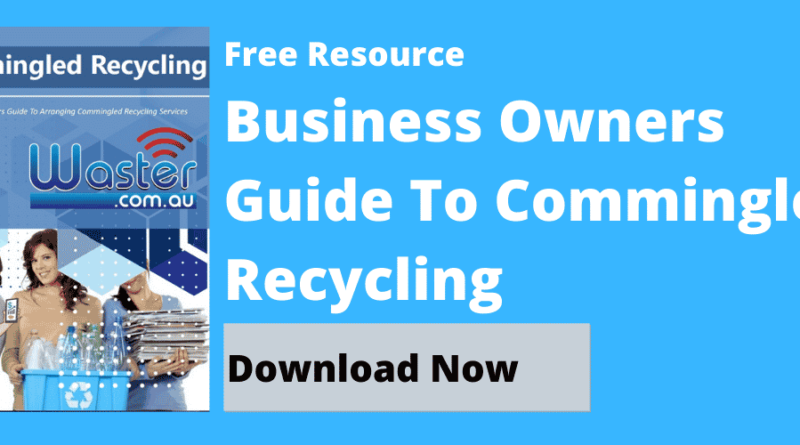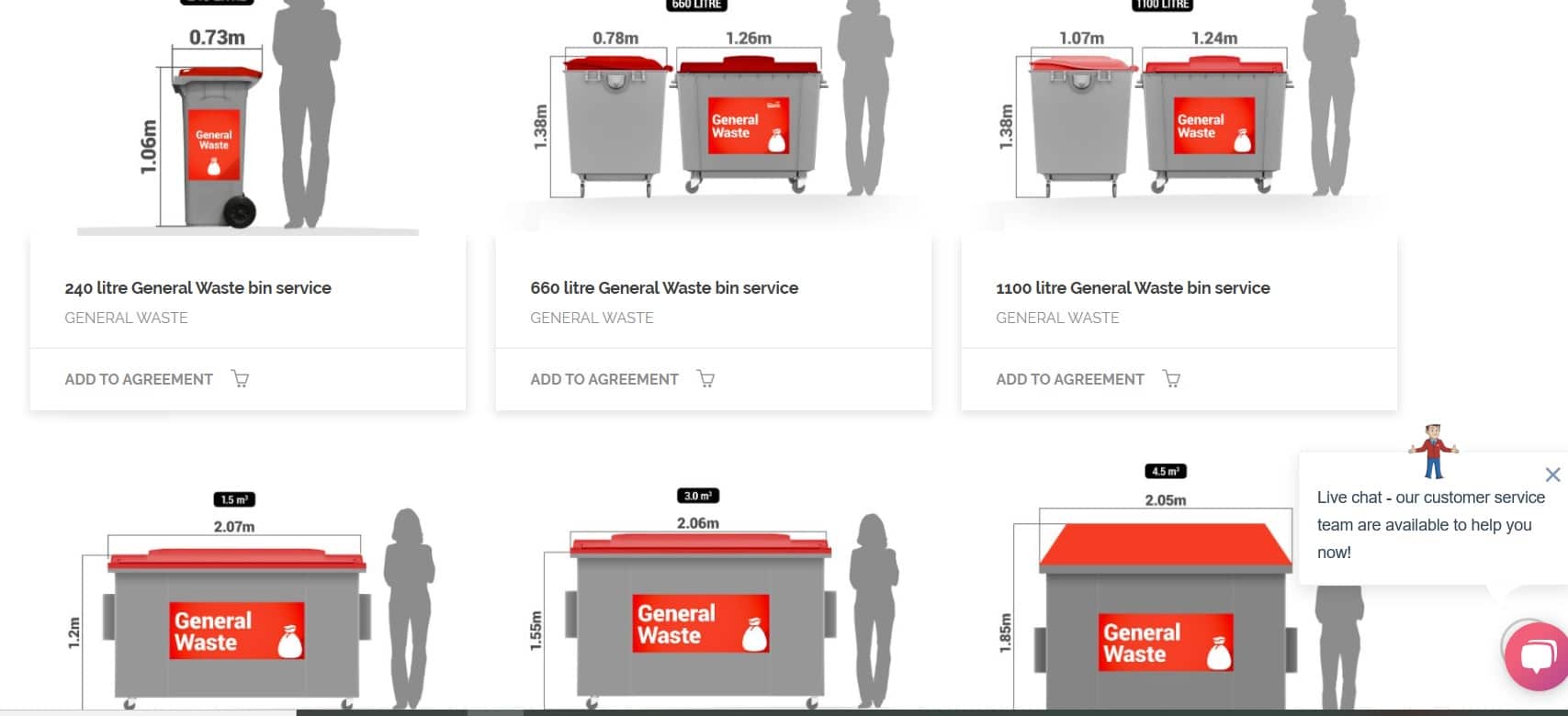Why Fining Is The Wrong Approach When It Comes To Boosting Recycling ♻️ Podcast Ep. 35 Don’t Be A Waster
Energy Disrupter
Fining In Recycling: The Wrong Approach ♻️ Podcast Ep. 35 ♻️ Podcast Ep. 35 Don’t Be A Waster
Listen on Apple Podcasts Listen on Spotify Listen on Google Podcasts Listen on Stitcher Listen on Amazon Music
Transcript: Why Fining Is The Wrong Approach When It Comes To Boosting Recycling
Fining In Recycling: Hello and welcome to another edition of Recycle: Don’t be a Waster, your favourite podcast on all things recycling! In today’s episode, we’re going to do, hopefully, a short one on a news story that was in most of the Australian national press this morning. That is, a council in Perth in Western Australia, and let me check, it’s called Victoria Park. He’s proposing to fine people five thousand dollars for having bad-smelling green bins.
>Download Now: Free PDF Business Owners Guide To Commingled Recycling Bin Services
So there’s the agreements of the organic waste, basically, grass that sort of stuff, garden clippings. And yeah, you’re gonna be fined five thousand dollars for having – if the bin smell, apparently. So I suppose, in the last podcast, the reason this was interesting to me, in our last podcast, we talked about whether finding people is what we want to do to reach our recycling objectives. And I suppose my view was, we’d probably try not to, like I think, finding people is, I think, we’ve all had enough of that.
[embedded content]
In the last couple of years, at least, I have – we’ve all – had enough of government overreach into our lives, and you know, dictating to us and putting huge fines on us for doing things, you know. I just think it’s the wrong approach, but particularly this app, this incident, which we’ll dig into a bit, is really taking things to comic book levels, you know. It’s a bit like, I think, you should be more awarded money if your bin doesn’t smell.
If it’s green waste, I think the idea that your bin wouldn’t smell is almost, uh… the more fanciful event. Green waste smells. And this stuff is… fundamentally rot, breaks down the rot, and depending on how often you’re picking these bins up, depending, which I assume is not going to be probably, not every week, maybe at least a fortnight. Bearing in mind, this is Australia and it gets very hot for large amounts of the year, and this stuff, in theory, will be sitting in a plastic box and sweating and breaking down and releasing methane and carbon dioxide and different gases.
Act 2: Why Fining Is The Wrong Approach When It Comes To Boosting Recycling
And fundamentally, they will smell. And it reminds me of a [where] I previously worked, in a major waste corporation that had some French Executives. It was a French headquarters business, and at one point, we – they – operated what was called an advanced recycling facility, which was basically a huge indoor plant where green waste, and I think, some food waste was led to break down organically, and a form of compost.
It was enclosed because the stench was so strong, but somebody made the mistake of, you know, the French Executives who were, you know, some of them weren’t the most down to earth people – were jetting in and they had a flight boot back to Paris from Sydney that evening, and someone had the bright idea of putting them on this, bring them to visit this facility on the morning before they flew. And the problem with this was that these facilities smell incredibly bad and the the material as it breaks down, it gets into your skin and into your clothes.
Realistically, if you go into that facility, you will smell so bad for the next couple of days if you don’t severely wash and you’ll launder your clothing. So these French Executives came and went into the facility without being told about this and smelled so bad on the flight back to Paris that, I believe, people eventually face some disciplinary action so that’s on the other side. But you know, I think the idea that you’d find five thousand dollars is just preposterous! How would you police this? You know, what is the definition of smelling bad? You know, that you can’t smell is something that cannot be really categorized.
Act 3: Why Fining Is The Wrong Approach When It Comes To Boosting Recycling
And the idea that anybody will be found and that anybody would actually pay five thousand dollars is just fancy if, again, so I think this is just, you know, some bureaucrat or some council worker thinking pushing their, you know, flexing their muscles a little bit and trying to prove how tough they are. Hey, I don’t think it’s going to achieve much and it’s not going to, you know, boost recycling rates with that sort of fear factor. And I think it’s probably, you know, self-defeating, I think, to boost recycling.
To help your environment, we need to sell the positives. I would argue there’s two ways, and we covered this a little bit on our last podcast about, you know, capturing the economic value of recycling and helping the environment. And you know, sometimes, if we we always present it in the wrong way, it’s almost like finding people – it’s negatives. There’s got to be positive as well. Is there, are there positive payments or something for, you know, reaching? Do the right thing, you know. It could even be that a National Fund will pair corporations’ money if they recycle more, you know, those sort of ideas: probably need to be to be explored more.
Because at the moment, it’s all the inverse, you know, could people get paid more for. Can people pay less in their municipal bills if they recycle more? And if their general waistbands are lighter, could they pay less? You know, if you stop bringing in sort of those incentives, that there are real incentives that actually reflect the reality of where the West goes and who’s to pay for it, that might be more beneficial. Obviously, you know, at the minute in Australia we pay water bills. I know, in other countries paying for water has been incredibly controversial, and people don’t like paying more or less than their neighbours. So obviously, those ideas, you’d really need to look at them in more detail.
Act 4: Why Fining Is The Wrong Approach When It Comes To Boosting Recycling
Yeah, I think when you bring in the world of fighting, clearly illegal dumping when it gets into criminal activity, you know, there were cases recently where they were fly tipping and illegal dumps. Clearly, that sort of stuff is environmental pollution. It’s dangerous. It damages the environment, and clearly, that’s police action. And once a police gets involved, clearly, you’re looking at, you know, you’re looking at finds. You’re looking at whatever criminal prosecutions that’s perfectly… no one’s arguing against that. That’s that’s the the realm of police and justice, but I think, you know, when we’re getting into finding people for just, you know, for different – the natural breakdown of their own, you know, if you have a large lawn there, for example, you know, you have a lot of green clippings.
Does that make you more likely to this? To be fine than others when in reality, you’re actually doing the right thing. You’re disposing of this waste the way the council wants you to, so I think, you know, sometimes people and I think in Australia, in particular, we’ve gone very much down the road of finding of heavy arm tactics, you know, if not maybe, not letting the market do what the market should do: and that’s to drive people with it, with natural incentives to do what they should do.
And also bear in mind: people, with the vast majority of people, want to do the right thing if they can if they’re educated about it. And you know, if they’re, if it makes sense to them, so I think that would be my approach. I think that’s the way of recycling and the environmental approach it should go. I also, I don’t know what listeners feel about this, but I also just feel there’s a real growing pushback from people. They literally feel that the green element with the recycling, the environment, is being pushed down their throat whether they want it or not.
Act 5: Why Fining Is The Wrong Approach When It Comes To Boosting Recycling
They often believe that any alternative views have been forced out of their public space that, like, I don’t think would you be allowed to appear on, you know, on an ABC television, for example, or radio if you argued against, you know, the global warming consensus or if you argued against even recycling. I don’t know, would you, if somebody, would you be allowed to appear on television and argue that everything should be done to landfill and we should continue using plastics?
I don’t know if you would anymore, and I think people are resentful of that. And the more you enforce, and you find, and you push things, and you don’t allow the beard and a discussion, because realistically, improvements only happen when people discuss things. The more that we block that opportunity, people are pushing back. I think that you are going to see more of this. There’s going to be a certain percentage of the population who just will just press a lot at what they feel living forced to do. I may be wrong on that, but yeah, I’d be interested to hear a listener’s viewpoint. So we’ll leave it there today and I hope no one gets fined five thousand dollars next week for their bin smelling, yeah – finger crossed. Okay, have a great weekend!

















